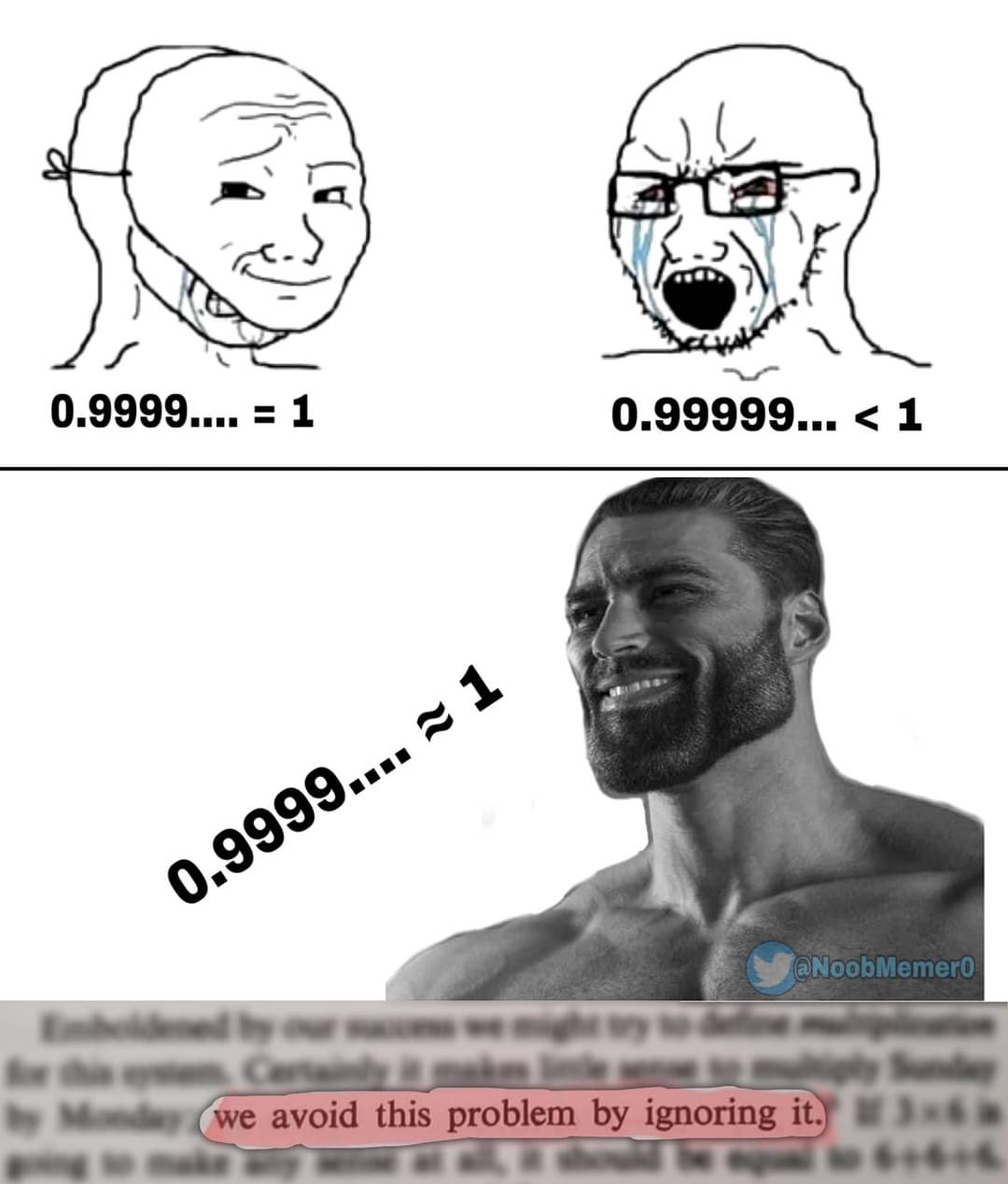this post was submitted on 27 Jun 2024
819 points (95.2% liked)
Science Memes
12854 readers
2418 users here now
Welcome to c/science_memes @ Mander.xyz!
A place for majestic STEMLORD peacocking, as well as memes about the realities of working in a lab.

Rules
- Don't throw mud. Behave like an intellectual and remember the human.
- Keep it rooted (on topic).
- No spam.
- Infographics welcome, get schooled.
This is a science community. We use the Dawkins definition of meme.
Research Committee
Other Mander Communities
Science and Research
Biology and Life Sciences
- [email protected]
- [email protected]
- [email protected]
- [email protected]
- [email protected]
- [email protected]
- [email protected]
- [email protected]
- [email protected]
- [email protected]
- [email protected]
- [email protected]
- [email protected]
- [email protected]
- [email protected]
- [email protected]
- [email protected]
- [email protected]
- [email protected]
- [email protected]
- [email protected]
- [email protected]
- [email protected]
- [email protected]
- !reptiles and [email protected]
Physical Sciences
- [email protected]
- [email protected]
- [email protected]
- [email protected]
- [email protected]
- [email protected]
- [email protected]
- [email protected]
- [email protected]
Humanities and Social Sciences
Practical and Applied Sciences
- !exercise-and [email protected]
- [email protected]
- !self [email protected]
- [email protected]
- [email protected]
- [email protected]
Memes
Miscellaneous
founded 2 years ago
MODERATORS
you are viewing a single comment's thread
view the rest of the comments
view the rest of the comments

Reals are just point cores of dressed Cauchy sequences of naturals (think of it as a continually constructed set of narrowing intervals "homing in" on the real being constructed). The intervals shrink at the same rate generally.
1!=0.999 iff we can find an n, such that the intervals no longer overlap at that n. This would imply a layer of absolute infinite thinness has to exist, and so we have reached a contradiction as it would have to have a width smaller than every positive real (there is no smallest real >0).
Therefore 0.999...=1.
However, we can argue that 1 is not identity to 0.999... quite easily as they are not the same thing.
This does argue that this only works in an extensional setting (which is the norm for most mathematics).
Thanks for the bedtime reading!
I mostly deal with foundations of analysis, so this could be handy.
Easiest way to prove it:
1 = 3/3 = 1/3 * 3 = 0.333... * 3 = 0.999...
Ehh, completed infinities give me wind...